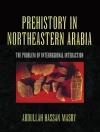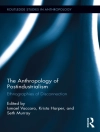This book is an introduction to the mechanical properties, the force generating capacity, and the sensitivity to mechanical cues, of the biological system. To understand how these qualities govern many essential biological processes, we also discuss how to measure them. However, before delving into the details and the techniques, we first learn the operational definitions in mechanics, such as force, stress, elasticity, viscosity and so on. Mechanics is explored at three different length scales – molecular, cellular, and tissue levels – sequentially, and measurement techniques to quantify the intrinsic mechanical properties are discussed, along with force generating capacity, mechanoresponsive processes in the biological systems, and rupture forces.
İçerik tablosu
Chapter 1: force, stress, and mechanical properties in biological systems Chapter 2: Mechanics Primers and the Theoretical Models for Biomaterial Characterization Chapter 3: Important Forces at the Molecular Level and How to Measure Them Chapter 4: Important Forces at the Cellular Level and How to Measure Them Chapter 5: Important Forces at the Tissue Level and How to Measure Them
Yazar hakkında
Yun Chen is an assistant professor in the Department of Mechanical Engineering at Johns Hopkins University. She specializes in developing multi-scale, multi-modal imaging tools to study how mechanics integrates with other biophysical and biochemical factors to sustain normal physiology or to cause pathology. Seungman Park is a postdoctoral associate at Johns Hopkins University. Park Received his Ph D in mechanical engineering from Purdue University in 2014. His research areas are tissue engineering, cell mechanics and mechanobiology. He is a member of the American Heart Association, American Physical Society, American Society of Cell Biology and the Biophysical Society. He is also a recipient of the Maryland Stem Cell Research Fund.












